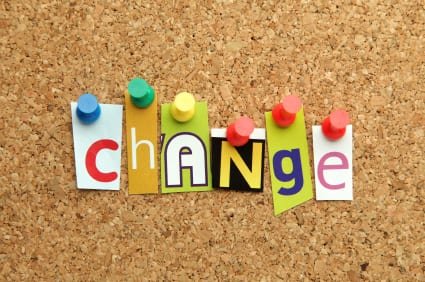Reader Q&A: How To Stop Sabotaging Your New Habits

Recently I received an email from a client who had hit a rough patch in her efforts to create new habits for self-care, planning and prioritizing her day, organizing her home, and many other areas of her life.
Because this is such a common challenge for everyone committed to the process of change, I thought it best to share our conversation with you as well.
Regina from North Carolina writes:
This morning after hitting the snooze for the 7th time, I woke up feeling like a fraud and a failure. It’s 9:30am, a cup of coffee, prayer, and a walk later and I still can’t shake this feeling.
I still have not completed my review of documents in prep for my test next week. I find myself spinning my wheels trying to put together a project plan for this delivery as well as the other tasks on my plate.
When this happens I interrupt myself and play games, or email, etc. All counterproductive actions.
I have not progressed on my course since last Thursday (when I had a huge breakthrough) but there’s only one week left to get through two and half weeks of material. So this morning it feels like another area I’ll never change.
I welcome your feedback.
###
Regina,
I love that you reached out for support. Beautiful.
You have been making great strides in many areas of life recently. So what comes up for me when I read your email is that it can be extra, extra scary when you are start coming closer to what it is you want in life.
Be it a clutter-free home, more control over your time, more connection to God, more sleep and self-care – you name it.
I have seen this pattern in my clients, friends, and in my own life. Managing this part of the change process can be tricky.
There are all sorts of reasons why we do this.
Maybe it’s the fear that the new habit will be too hard to maintain or that people will start to expect more of you or you will have to start expecting more of yourself.
Maybe it’s the fact that the “improving” never really ends. There’s always something more that we want to change in our lives and frankly, it can be exhausting.
Especially if we are beating ourselves up in the process.
One counterintuitive strategy that helped me be more kind to myself was surrendering to the fact that maintaining my new habits will always take a conscious effort – for life.
It is really OK that change is hard and you don’t have to beat yourself up for it being hard.

Last year, when I was faced with 30 pounds of extra weight that I had already lost 10 years before, I had a very hard time getting motivated to lose it again.
After a while, I realized I was making it harder on myself to take any steps forward because I was insisting that this weight loss – and the subsequent maintenance – be easy, if not automatic.
The truth is habits don’t work that way. They take effort. And they take time – lots of time (way more than 21 days) to become a habit.
And even after the new habit is formed there will still be the effort of maintenance.
I had to get very clear that I will always have to put in some conscious effort each day to exercise and eat healthy food. It may never be automatic for me.
And I had to get very clear that this was totally and completely OK.
Once I accepted this, I was able to commit to the process.
I decided that I wasn’t going to make any change that I wasn’t willing to do for the next 30 years. So all of my habit shifts have been very, very gradual. And so far it’s been working for me.
Being kind to yourself wherever you are in the change process will help keep those sabotaging thoughts and behaviors at bay.
Letting it be OK that it is hard is one way you can do this. You have already done so much to shift your life in many ways. Remember Regina that even days like today are all part of the same process of creating the changes you desire.
###
What would you tell Regina in this situation? How do you deal with sabotaging thoughts and behaviors? How do you motivate yourself with kindness? Share your thoughts below.
Latest Blog posts
![[Free Meditation] The Dangers Of Self-Improvement](/media/images/Free_Meditation_The_Da.2e16d0ba.format-jpeg.fill-590x300.jpg)
[Free Meditation] The Dangers Of Self-Improvement
How you get into the water is less important than actually being in the water.

Resources For Women With ADHD
I recently sat down with Linda Roggli, PCC, for a quick and informative interview.

10 Hard To Believe (But True) Productivity Statistics
Here are some of my favorite hard to believe productivity statistics that help point out what science has known longer than our society